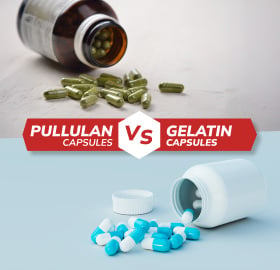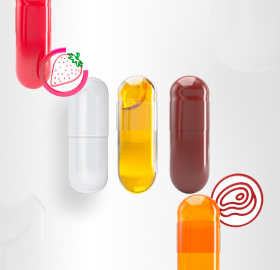By its very nature, the pharmaceutical industry has always been characterized by continuous innovation and change. Looking ahead, this continuous innovation and change will continue in 2024. Here are some of the pharmaceutical trends that we anticipate for the coming year...
Business and operations trends
Artificial intelligence for pharmaceuticals
Although the media made 2023 seem like “the year of artificial intelligence (AI),” the reality is that artificial intelligence for pharmaceuticals was already underway long before ChatGPT made its debut (see our previous article on How AI Can Benefit the Pharmaceutical and Nutraceutical Industries).
Moving forward, we anticipate that AI and machine learning will become even more important to the pharmaceutical industry. AI has great potential in the product development space, where it will continue to be used to speed drug discovery and development. For example, artificial intelligence for pharmaceuticals is being used for identifying new drug targets, predictive chemical modeling, data mining and analysis, and predicting clinical outcomes.
Pharmaceutical companies will also make greater use of artificial intelligence to tackle the backend paperwork and reports that can be such an onerous aspect of clinical trials. All of these AI use cases can help pharma companies to address the challenge of rising research and development costs.
Personalized medicine
As we move into 2024, expect to see continued innovation in the area of personalized medicine, where treatments are tailored to individual genetic profiles. Thanks to its potential to revolutionize disease treatment and improve patient outcomes, demand for personalized medicine is growing. With a personalized medicine approach, clinicians can better identify whether a patient is likely to respond to a particular treatment, and, because the treatment is tailored to the patient’s genetics, help avoid adverse side effects.
In many cases this type of technological advance is likely to be powered by artificial intelligence. It’s a great example of the convergence of two 2024 pharmaceutical trends.
Supply Chains and Sustainability
Like executives in most industries, pharmaceutical leaders are looking for ways to embrace sustainability and reduce their companies’ environmental footprints. As pharmaceutical companies continue to recover from the pandemic’s supply chain shocks, many sustainability efforts are being combined with efforts to improve supply chain management and reduce supply chain risk. This makes sense because, as Deloitte reports, “more than 70% of the emissions produced by life sciences companies originate in their supply chains.”
In the empty capsules market, for example, more brands are recognizing the benefits of partnering with a company such as CapsCanada that manufactures empty capsules in the Americas, in state-of-the-art facilities that support brands’ sustainability goals.
In addition, as NoyMed CRO reports, many pharma companies will be embracing circular supply chain strategies as a way to build more stability into their supply chain. In a circular supply chain, raw materials such as plastic, metal and glass are reused as long as possible. This, of course, also supports sustainability goals.
To overcome supply chain risks, European Pharmaceutical Manufacturer also predicts that drug producers – especially those that produce lower-volume specialized drugs – may need to join forces in order to jointly shore up their supply routes. If these companies can overcome the intellectual property challenges associated with this tactic, they may find that combining demand entices additional suppliers to enter the market.
Regulatory compliance
The trend for ever more complex and burdensome regulatory environments shows no sign of abating in 2024. Regulatory requirements and pressures affect all aspects of pharmaceutical companies’ operations, from clinical trials to manufacturing, distribution and pricing.
In the U.S., for example, the federal Inflation Reduction Act and various state-level Prescription Drug Affordability Boards are all seeking to cap and control drug costs. Complying with these regulatory mandates while remaining profitable and maintaining a robust R&D pipeline will be a significant challenge for many pharmaceutical companies in 2024 and beyond.
Emerging Markets
A big driver of growth in the pharmaceutical market in 2024 will be emerging and growing markets, such as China and India. Combined, these two countries have a total population of 2.78 billion – i.e., over one third of the world’s population.
Drug Delivery
In the area of drug delivery, watch for more pharmaceutical companies to take advantage of advances in capsules technology. For example, CapsCanada offers delayed-release capsules in both gelatin and vegetarian formats. These capsules are designed to protect formulations from the harsh environment of stomach acidity, without the need to incorporate acid-resistant properties during manufacturing. Instead, the acid resistance is incorporated in the capsule material itself.
In general, capsules also offer the ability to create sophisticated modified-release products and/or fixed-dose combinations of otherwise incompatible drugs. This is because a variety of fill types, such as pellets, powders, granules, pastes, liquids and small tablets, can all be combined in one capsule.
Product trends
From the product standpoint, opportunities in the following areas are likely to be on trend in 2024:
• Small molecule drugs – NoyMed CRO reports that “small molecule drugs are expected to continue to dominate the pharmaceutical market in 2024, accounting for over 54.9% of global sales.” As compared to biologics, small molecule drugs are easier to formulate, manufacture and administer.
• Specialty drugs – In the U.S., specialty drugs, such as complex treatments for chronic diseases, now account for half of the total pharmaceutical market. With the number of Americans suffering from chronic diseases expected to increase from 71.522 million in 2020 to 142.66 million by 2050, consumer demand for these treatments should continue to be strong.
Given the fact that many specialty drugs are biologics that can target specific molecules or cells involved in disease processes, watch for increasing adoption of biologics as part of this trend.
• Generics and biosimilars – As more biologics lose exclusivity, look for opportunities to open up in these markets.
Conclusion
There’s a lot happening in the pharmaceutical world! As you contemplate how these trends will impact your company in 2024, please be aware that CapsCanada’s experts are here to help you succeed.















